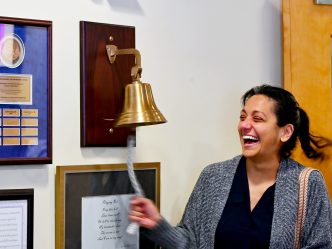You may have heard at some point that using birth control can hurt your chances of becoming pregnant later in life. But is that really true, or is it just a myth you can leave in the past? Read on as we share some insight.
The Different Types of Birth Control
Before we dive into the effects birth control can have on your fertility, it’s important to realize that there are many types of contraceptives—and they all work differently. That means that how they prevent pregnancy and may affect your body after use differs as well.
When you’re determining the type of birth control that’s right for you and your family, you can choose between permanent and reversible options, as well as hormonal and nonhormonal methods.
Permanent birth control—in the form of sterilization—is often called “getting your tubes tied.” This form of birth control is typically not reversible, which means you will usually be unable to conceive.
But other types of birth control are not permanent, and in the long run, they don’t have an impact on your fertility.
Conceiving After Discontinuing Birth Control
If you’ve decided to discontinue birth control, you may wonder how quickly your regular cycle will return or even worry whether having a baby will be possible at all. The good news is: In most cases, the use of birth control will not have a long-term effect on whether or not you can get pregnant after you stop.
Research in this area is quite promising for those who delayed pregnancy and now are looking to conceive. For example, in a study of women using both hormonal and nonhormonal IUDs, those who had used an IUD were as likely to get pregnant after 12 months as those who had not.
Similar effects were found with oral contraceptives, hormonal contraceptive rings and contraceptive implants. Ovulation and the ability to become pregnant typically returns to “normal” levels within months after birth control is discontinued.
When to Seek Help
What should you do, though, if you have difficulty conceiving after discontinuing birth control use?
If your menstrual cycle is irregular for longer than a month or two after you cease birth control use, speak with your OB/GYN. Longer-term issues may require the help of a fertility specialist.
The American Society for Reproductive Medicine recommends seeking the help of a fertility specialist if you haven’t achieved pregnancy after one year of having unprotected sex. If you’re age 35 or older, though, speak with a specialist if you haven’t conceived after six months.





